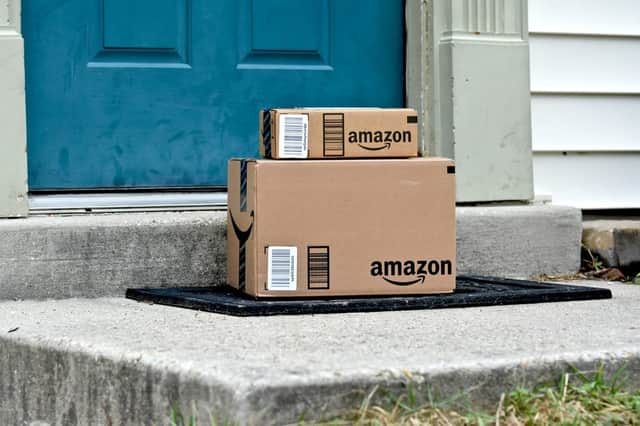Online shoppers are being warned about an Amazon ‘brushing’ scam - here's how it works


The UK’s recent increased dependence on online shopping has opened up a gateway for scammers to steal your details.
This is everything you need to know about “brushing” scams - and what to do if you think you’ve been targeted.
Advertisement
Hide AdAdvertisement
Hide AdWhat is a ‘brushing’ scam?
Consumer watchdog Which? reported on brushing scams, when an Amazon Prime member got in touch to explain how they had been sent two random items that they didn’t order and hadn’t paid for - a carbon monoxide detector and gaming headphones.
When the customer got in touch with Amazon, they were told that the account used to purchase the items wasn’t theirs, and had been paid for using gift vouchers.
A few days later, the customer received more packages - braids and a screen protector - but this time around refused to accept them. They called Amazon again, who blocked the suspicious account.
The Amazon Prime member then changed their password and ordered a new credit card, and no more deliveries arrived.
Advertisement
Hide AdAdvertisement
Hide AdSo what was the point in sending these random items to a person in the first place?
What’s the purpose of the scam?
The scam involves Amazon sellers setting up accounts in a stranger's name and then sending their products to that unwitting customer.
This account is then used to write up a fake verified review in an attempt to improve their seller ratings.
Which? explains, “In this case, it’s likely that the member’s name and address had been leaked somewhere.”
Advertisement
Hide AdAdvertisement
Hide AdUsing haveibeenpwned.com, a website that tells you if your data has been part of a breach, Which? discovered that details of the user who had reached out to them had been involved in at least four breaches.
What to do if you think you’re part of a brushing scam
If you suddenly received deliveries of parcels from Amazon that you didn’t order or pay for, changing your Amazon password and cancelling the card linked to the account is a good first step.
Identity theft is a serious threat - once a scammer has access to your personal information, they can wreck extreme havoc, including leaving you in major debt.
You should also report these parcels to Amazon as well, so the company can investigate what’s going on.